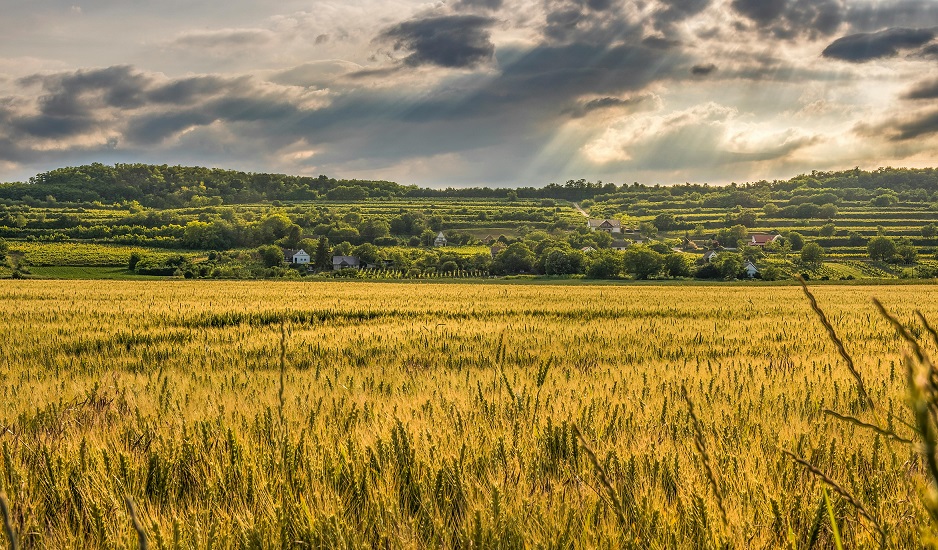Farming: The Groundwork of Human progress
Agriculture definition : Farming, the act of developing the land and raising animals, is the foundation of human civilization. An intricate and diverse undertaking has significantly molded social orders, economies, and scenes from the beginning of time. From the earliest agrarian networks to the cutting edge modern ranches of today, farming has been a steady wellspring of food, development, and social articulation.

Characterizing Agribusiness
At its center, farming is the science and craft of delivering food and other important assets from the land. It incorporates many exercises, including:
• Crop Creation:
The development of plants for food, feed, fiber, fuel, and different items. This incorporates exercises like planting, preparing, flooding, and gathering crops.
•Domesticated animals Creation:
The raising of creatures for meat, milk, eggs, fleece, and different items. This incorporates exercises like reproducing, taking care of, and really focusing on creatures.
•Fisheries and Hydroponics:
The development of sea-going living beings like fish, shellfish, and green growth for food and different items.
•Ranger service:
The administration of woods for lumber, fuel wood, non-wood timberland items, and other biological system administrations.
The Advancement of Horticulture
The historical backdrop of farming is a long and captivating one, tracing all the way back to the Neolithic Unrest, when people progressed from a migrant agrarian way of life to a settled rural one. This shift significantly affected human social orders, prompting the advancement of long-lasting settlements, the specialization of work, and the rise of perplexing social designs.
Over the long haul, agribusiness has developed in light of changing ecological circumstances, mechanical progressions, and cultural requirements. From the improvement of early water system frameworks and the taming of creatures to the advanced utilization of biotechnology and accuracy horticulture, human resourcefulness has constantly pushed the limits of rural creation.
The Significance of Horticulture
Horticulture assumes a basic part in supporting human existence and supporting monetary turn of events. It gives the food we eat, the garments we wear, and the fuel we use. It likewise adds to many other fundamental labor and products, including.
•Food Security:
Agribusiness is the essential wellspring of nourishment for the world’s developing populace. It is fundamental for guaranteeing that everybody approaches protected, nutritious, and reasonable food.
•Financial Development:
Farming is a significant monetary driver in numerous nations, giving position and pay to a great many individuals. It additionally adds to the development of related enterprises, for example, food handling, transportation, and retail.
•Natural Supportability:
Horticulture is firmly connected to the climate. Economical horticultural practices can assist with safeguarding normal assets, diminish contamination, and moderate the effects of environmental change.
•Social Legacy:
Farming is a fundamental piece of many societies and customs all over the planet. It shapes our scenes, our foodways, and our lifestyle.
Difficulties and Open doors in Farming
Regardless of its significance, farming countenances various critical difficulties in the 21st hundred years. These include.
•Environmental Change:
Environmental change is as of now significantly affecting farming, influencing crop yields, water accessibility, and the spread of irritations and illnesses.
•Populace Development:
The total populace is developing quickly, coming down on horticultural creation to satisfy the need for food.
•Asset Shortage:
Land, water, and other regular assets are turning out to be progressively scant, making it more challenging to reasonably create food.
•Food Squander:
A lot of food is squandered every year, adding to monetary misfortunes and natural harm.
Nonetheless, there are additionally numerous potential open doors for development and improvement in farming. These include.
•Mechanical Headways:
New advancements like accuracy farming, biotechnology, and man-made brainpower can assist with expanding rural efficiency and proficiency.
•Feasible Practices:
Supportable agrarian practices can assist with safeguarding the climate and guarantee the drawn out suitability of farming.
•Worldwide Joint effort:
Worldwide participation is fundamental for tending to worldwide difficulties in agribusiness, for example, food security and environmental change.
The Eventual fate of Farming
The eventual fate of farming will be formed by a mind boggling interchange of mechanical, ecological, and social variables. As the total populace proceeds to develop and environmental change heightens, there will be a rising requirement for creative and feasible agrarian practices.
A portion of the key patterns that are probably going to shape the eventualfate of farming include.
•Metropolitan Horticulture:
The developing pattern of metropolitan agribusiness, where food is delivered in urban areas and towns, can assist with further developing food access and decrease the ecological effect of transportation.
•Accuracy Farming:
Accuracy agribusiness, which utilizes innovation to enhance horticultural data sources and results, can assist with expanding yields and diminish ecological effect.
•Elective Proteins:
The advancement of elective protein sources, for example, plant-based and cell-based meat, can assist with lessening the ecological effect of animals creation.
•Environment Brilliant Farming:
Environment savvy agribusiness, which coordinates environmental change variation and alleviation systems into rural practices, is fundamental for guaranteeing the drawn out maintainability of horticulture.
All in all, farming is a perplexing and multi-layered try that is fundamental for supporting human existence and supporting monetary turn of events. 1 As we face the difficulties of the 21st 100 years, it is a higher priority than any time in recent memory to foster supportable and imaginative horticultural practices that can address the issues of a developing worldwide populace while safeguarding our planet’s assets.

I’m really inspired together with your writing talents and also with the format for your weblog. Is this a paid subject matter or did you modify it your self? Either way keep up the excellent quality writing, it’s uncommon to peer a great weblog like this one today. !
Портал регулярно проводит опросы среди пользователей. На их основе создаются подборки самых популярных рецептов месяца и сезона.
Кулінарний блог koshkindomik.icu